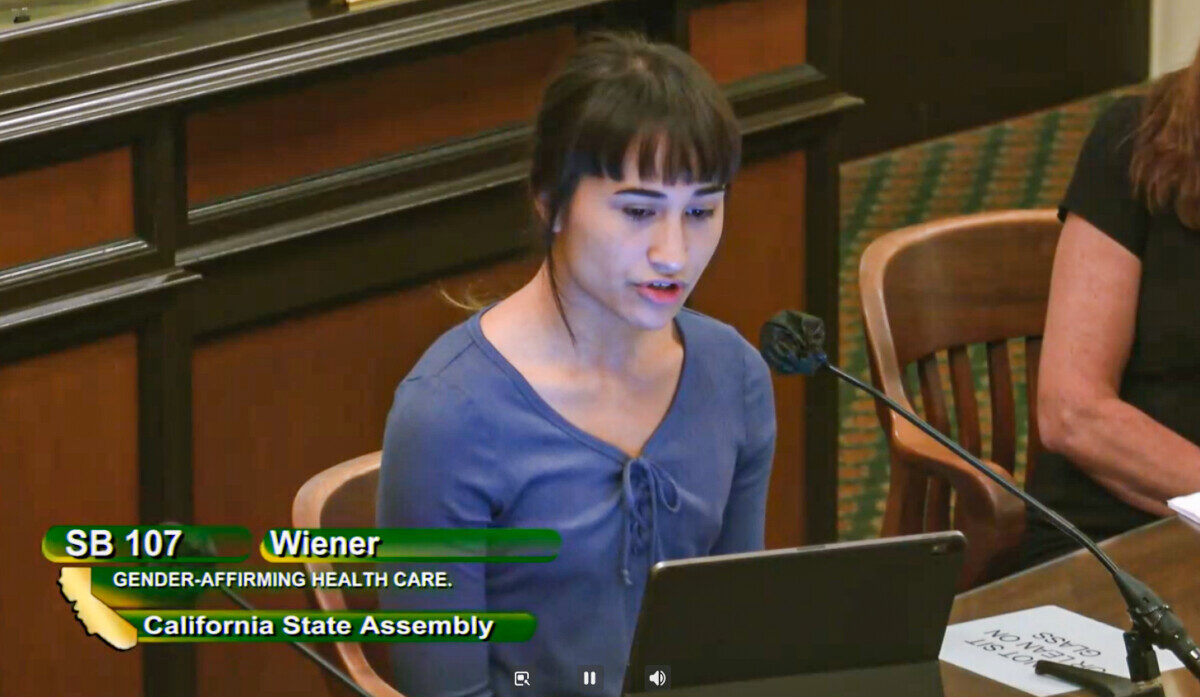.
Making Children Lie
__Canker of mind, the soul
Denied—a lonely social wound
Is making children lie with pruned
__And grafted lines, their whole
__Unfolding stories cut
And rearranged. Inverted nouns
And crossed-out text and scarring sounds
__And blocking verbs—and what
__A fearful disregard
For grammar, generations’ muse,
The rules that parse the pain. We bruise,
__And writing well is hard.
.
.
Maura H. Harrison is a poetry student in the Master of Fine Arts in Creative Writing program at the University of St. Thomas. She lives in Fredericksburg, Virginia.
















Maura,
For me this is arresting verse, which invites successive reads. Which brings me to a question: What I’m getting is that revisions/forced editing of writing/compositions is an allegory for these abhorrent surgeries, is that your intended take?
Thanks,
Stephen
Stephen,
thank you for your question. I would equate editing and revision to the process of learning, growing, and maturing. We all do that. The key for me is the disregard of “grammar” which would be the disregard for natural law, religion, and truth. We need grammar because writing well is hard; we need natural law, religion, and truth because we all know sin and pain. Grammar parses meaning; natural law/religion/truth parses our wounds.
I think the poet is using the correction of prose as a general metaphor for trans-sexual surgery. It’s a flawed metaphor, because we all admit that prose should be altered and corrected sometimes, while trans-sexual surgery is an uncalled-for abomination dictated by ideological compulsions.
The metaphor might be flawed, Joseph, but at least there are instances where altering prose is frowned upon by any sensible person: forgeries; unlicensed alterations of texts; fake news.
I agree with your take on the metaphor of revision of writing as transgender surgery—it is a flawed metaphor. But reading these comments and the poem again, I wonder whether the metaphor is not chopping prose, but chopping and regrafting the “story/narrative” as such (here the verb “lie” makes me think there’s a little more than I was taking away), which changes the game, though it’s not something you get right off, not me at least.
Joseph,
Thank you for your comment. I’m not criticizing editing and revision (these are good and are akin to learning) but the disregard for grammar, or the rules that help us make sense of our broken world.
You said (and implied) so much with so few words that you made writing well look easy. O tempora! O mores! What other abominations do you suppose we can look forward to?
Yes Kip, I agree — forgeries and unlicensed alterations of texts are certainly unwarranted. But every writer of good prose corrects his own early drafts, and may even revise a published piece in later years. My problem with the poem is that the metaphor suggests a piece of written prose should not be messed with, in the same way that sexual identity should never be messed with. They are two different categories: a product of human artifice, and a natural thing.
I cannot disagree with any of that.
Maura, I really like your poem and find it utterly intriguing. It’s a subject that I have often written about, and your take on it from an unusual angle has me thinking.
For me, your metaphor brings to mind: “In the beginning was the Word, and the Word was with God, and the Word was God” (John 1:1). When man plays God and makes children lie by skewing the Word spoken by God to breathe life into existence, then His Creation (His children) are altered beyond His intent. It all starts with pronouns and children’s stories, and swiftly moves on to hormone blockers, the scalpel, and big bucks for those who skew God’s Word. I have always thought insidious warping of words is how these demons are able to manipulate young minds into decisions more in keeping with the devil’s plans than God’s. Words matter… that is why those pushing transgenderism on children are so intent on reshaping their language.
Having read Dr. Salemi’s comment, I fear I may be bringing a little too much of myself to the interpretation of this poem… but whatever your intent, your poem has spoken to me.
Susan, my comments just reflect my personal views too. They are not dogmatic. It may be that Maura is fashioning a conceit here, by using written prose on a page to symbolize the human body. But since the poem is short, the conceit is very brief, and therefore not immediately apparent. In a longer poem, the conceit could be developed with more detail.
Joe, just to say I love all the different takes on the poem… they inspire me to think deeply… one of my favorite pastimes.
Susan (and Joseph’s follow-up comment),
Thank you for the comments. The last line, “And writing well is hard,” is what I would want all young people to know. Yes, life is hard (we bruise) and you may feel alone and out of sorts, but your life is not a mistake. “Grammar” helps us speak in meaningful ways. Faith in God (the grammar) helps us find meaning in the suffering (i.e. redemptive suffering).
Thanks again for the comments. Maybe the poem is not finished…..